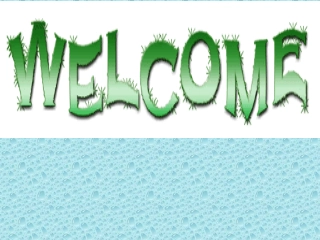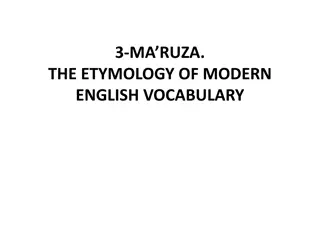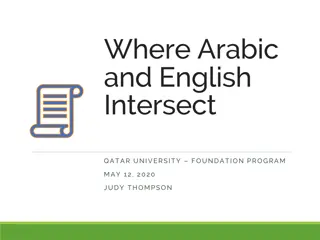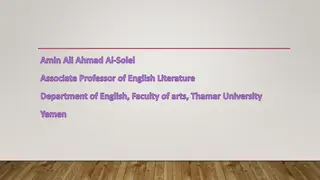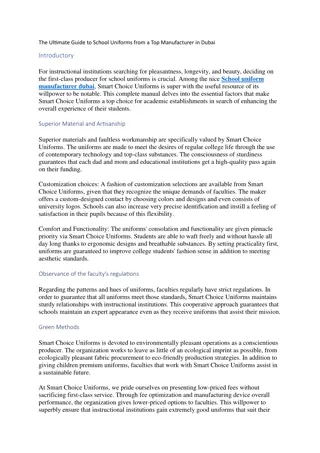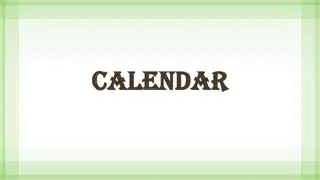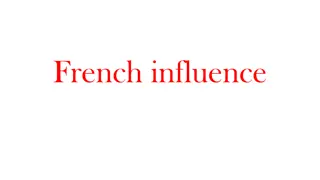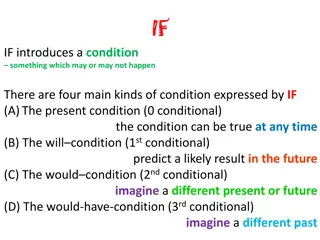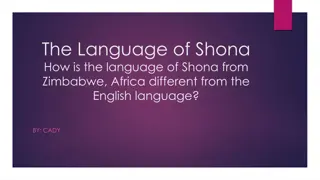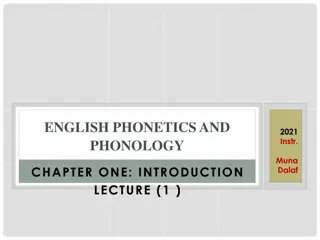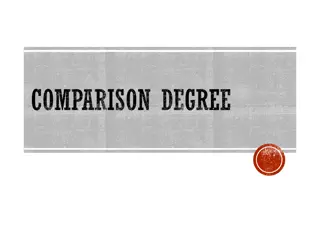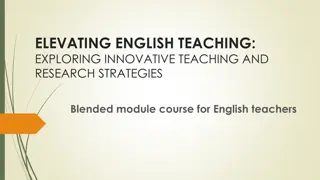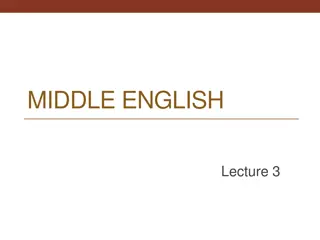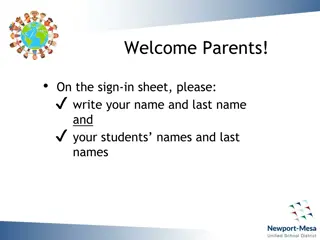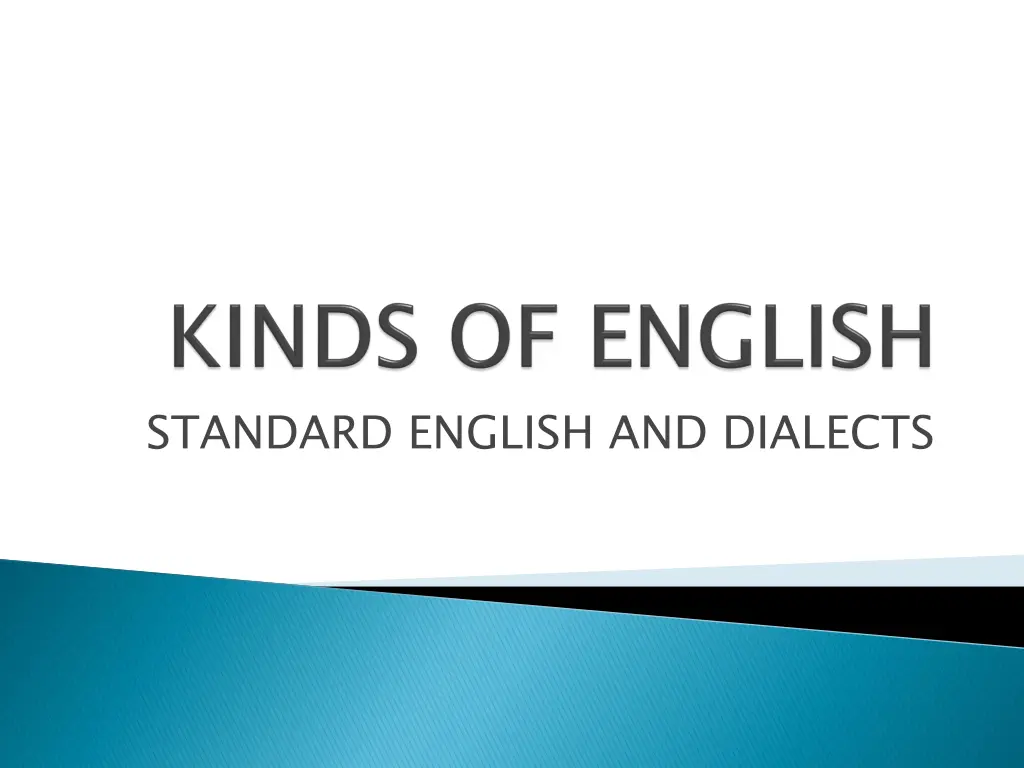
Understanding Standard English, Dialects, and Language Evolution
Explore the differences between Standard English and dialects, the influence of correctness and language evolution, and reasons why languages change. Discover insights into accents in writing and the evolution of language over time.
Download Presentation

Please find below an Image/Link to download the presentation.
The content on the website is provided AS IS for your information and personal use only. It may not be sold, licensed, or shared on other websites without obtaining consent from the author. If you encounter any issues during the download, it is possible that the publisher has removed the file from their server.
You are allowed to download the files provided on this website for personal or commercial use, subject to the condition that they are used lawfully. All files are the property of their respective owners.
The content on the website is provided AS IS for your information and personal use only. It may not be sold, licensed, or shared on other websites without obtaining consent from the author.
E N D
Presentation Transcript
STANDARD ENGLISH - English spoken in London and the East Midlands, official , standard language. Because of historical circumstances it was gradually adopted as the official variety of English. STANDARD ENGLISH - It is generally accepted for use in government, the law, business, education and literature
DIALECT - Not adopted for official purposes - Dialects have a long history DIALECT - Dialect is not the same as a regional accent - It has a non-regional standard pronunciation or received pronunciation
Showing accent in writing: elp yerself. (=Help yourself.) C mon. (=Come on.) I dunno. (=I don t know) I gotta go. (=I ve got to go.) Other standard forms of English: American English and other English-speaking countries International English (spoken as a foreign language; a mix of British and American English; often simplified). It is also called Globish .
CORRECTNESS - When do mistakes become correct? - Sometimes a mistake becomes so widespread that it becomes part of the language (this is one way in which languages develop) CORRECTNESS - There is formal and informal language - Informal words and expressions can become suitable for more formal situations
Some of the reasons why languages change: - Influence from other dialects - Languages simplify themselves - Underground forms become respectable - Mistakes become part of the language

